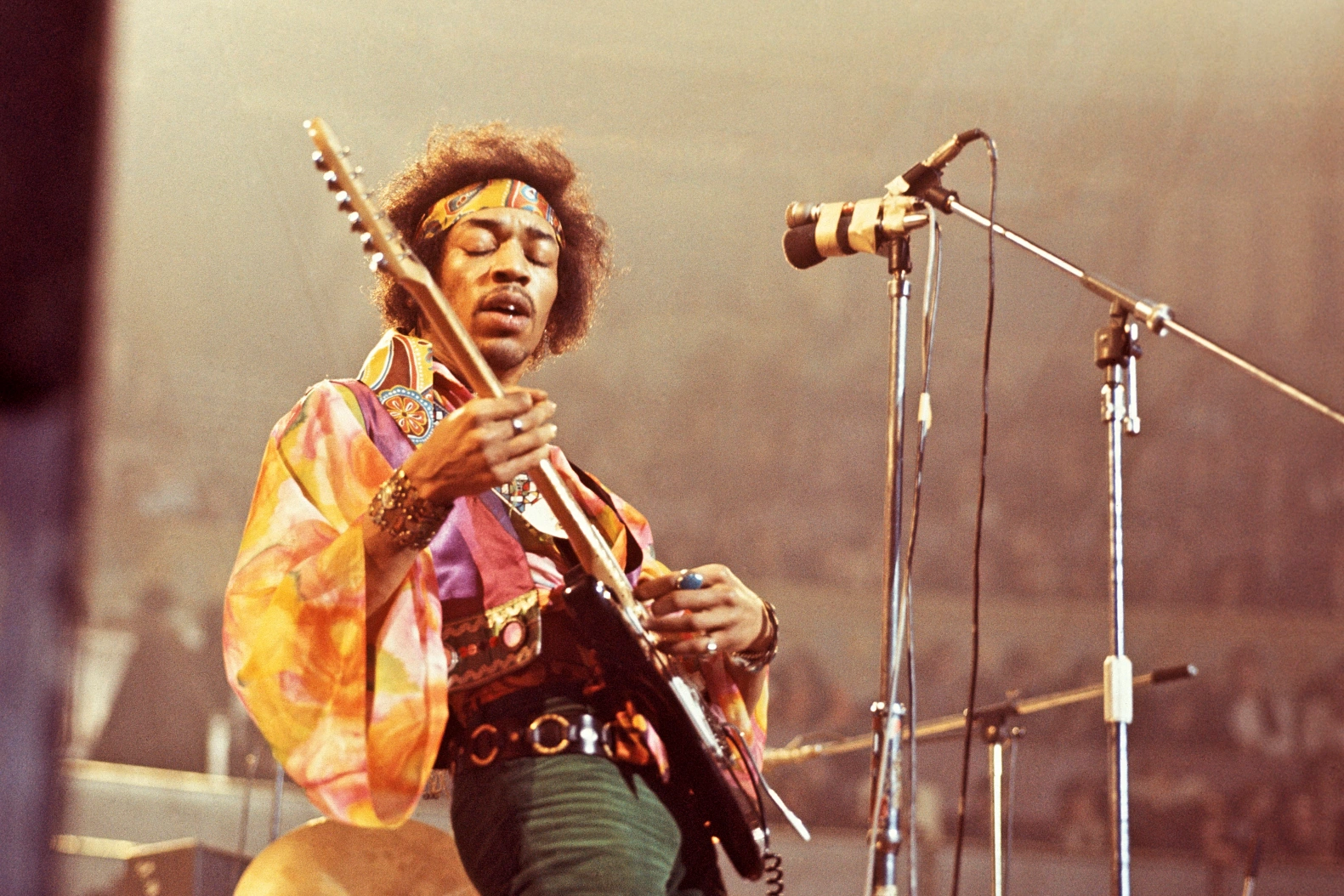When we delve into the annals of rock and roll history, there are few names as iconic as Jimi Hendrix and Eric Clapton. These legendary guitarists not only left an indelible mark on the music industry but also sparked countless debates among enthusiasts and critics. In this article, we explore the fascinating comparison that Jimi Hendrix made between himself and Eric Clapton, shedding light on their unique styles and contributions to the world of music.
In September 1966, a relatively unknown Jimi Hendrix made his way to England, setting foot in the town of Newcastle. Hendrix, a virtuoso guitarist, was in the nascent stages of his career, yet he possessed an extraordinary talent that was destined to make waves in the music world. During his initial days in England, Hendrix showcased his skills by busking in the suburban town center of Heaton, leaving the locals in awe.
It was during this time that Chas Chandler, former bassist of The Animals and Hendrix’s manager, recognized his immense potential and introduced him to the London music scene. Chandler’s connections paved the way for Hendrix to perform with none other than Cream, a band hailed as the pinnacle of technical proficiency in rock music.
Hendrix’s debut on the English stage was nothing short of spectacular. On that fateful night, he joined Cream on stage, consisting of Eric Clapton, Ginger Baker, and Jack Bruce. Clapton, known for his virtuosity on the guitar, was taken aback by Hendrix’s extraordinary talent. After the performance, Clapton exclaimed to Chandler, “You didn’t tell me he was that f**king good!”
Hendrix, in his diary, expressed his admiration for Cream and particularly for Eric Clapton’s guitar prowess. “I like the way Eric Clapton plays,” he wrote. “Eric is just too much.” Hendrix also had words of praise for Ginger Baker, describing him as “like an octopus” and “a real natural drummer.” However, Hendrix’s performance that night transcended the realms of ordinary talent, and his name began to circulate as a musical phenomenon.
Despite his undeniable talent, Hendrix faced challenges in forming the perfect band to complement his unique style. He needed musicians who could align with his artistic vision and energy. “It was very hard to find the right sidemen, people who were feeling the same as me,” Hendrix lamented.
This quest for the perfect band sheds light on Hendrix’s distinctiveness as an artist. He was not content with conforming to traditional expectations, and this characteristic became even more apparent in his disdain for comparisons to Eric Clapton.
Hendrix vehemently disliked being compared to Clapton. In a 1968 interview with music journalist Jay Ruby, he voiced his frustration, saying, “That’s one thing I don’t like at all.” He went on to explain that the constant comparisons forced them into the “blues” category, a label he and his band, the Jimi Hendrix Experience, didn’t want to be confined to.
“The blues is what we’re supposed to dig,” Hendrix explained. “But you see, there are other things we can play, too, and we just don’t think alike. Sometimes the notes might sound like it, but it’s a completely different scene between those notes.”
Hendrix felt that his music transcended traditional genres and refused to be pigeonholed into a single category.
Interestingly, despite his aversion to comparisons, Hendrix did make one comparison himself. In his diary, he noted, “His solos sound just like Albert King.” This comparison was a testament to the influence of Albert King on Hendrix’s style.
However, Albert King, the esteemed bluesman, did not take kindly to comparisons either. He once recounted a night when he decided to teach Hendrix a lesson during a jam session at a blues club. King criticized Hendrix for his departure from traditional blues, particularly citing “Foxy Lady” as an example.
King asserted, “Everybody says, ‘Well, he’s a hell of a blues player.’ No way, man. We played many shows together, and that night, I taught him a lesson about the blues. Now I could’ve very easily played his songs, but he couldn’t play mine.”
King’s perspective was that while Hendrix’s rock performances were visually impressive, they lacked the essential core of the blues. He criticized Hendrix’s rendition of “Red House” and believed that it fell short of the true blues essence.
In contrast to the expectations of traditional blues, Hendrix’s vision of music was groundbreaking and forward-thinking. He refused to limit himself to a specific genre and questioned the necessity of constantly revisiting the past. “Why go back there and drag out ‘Blue Suede Shoes’ just because you want to be hip to be defined rock, which is a drag in the first place because those people aren’t offering you anything this very instant, are they?” he challenged.
Hendrix’s desire to bring something new to guitar playing and his rejection of musical boundaries made him one of the most incomparable guitarists in history. His ability to blend various styles, techniques, and emotions into his music set him apart from the rest.
In conclusion, the comparison between Jimi Hendrix and Eric Clapton reveals the complexity of their musical journeys. While Hendrix admired Clapton’s skill, he resented being confined to a single genre. On the other hand, Albert King, a blues legend, found fault with Hendrix’s interpretation of the blues. Ultimately, Jimi Hendrix’s refusal to conform to traditional expectations and his relentless pursuit of innovation solidified his status as an iconic and incomparable guitarist in the history of music.
